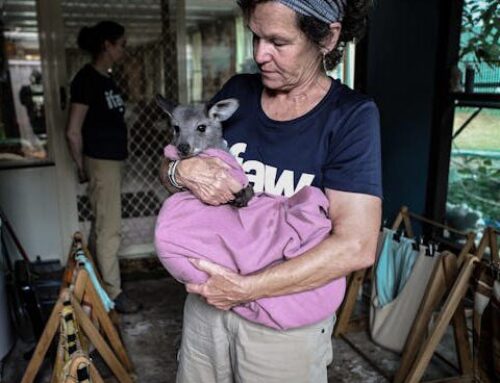Many of us see movies to escape. And why not? Who can say no to spending two luxurious hours in limousines, penthouses, and shopping on Rodeo Drive (Pretty Woman). Or what about madly flying around, casting spells, and wreaking havoc (Harry Potter; Hocus Pocus). Need a break from the daily grind? Movies like Interstellar and The Martian will provide that out-of-this-world experience that may just lift us up and away from the endless drone of carpools, casseroles, and to-do lists. While most films have a message for the viewer, there are others whose message is deeper, more powerful, probing, even profound.
According to Psychology Today, movies have the ability to change our attitudes, how we think and feel, and even our values. Seeing how others live their lives on the big screen can help us view things from a different perspective and become more understanding of other people, ultimately broadening our knowledge of the world around us.
Movies Shining a Spotlight on the Role of a Caregiver
This Sunday’s 95th Academy Awards will showcase the cream of 2022’s movie choices. But there are also films, some that have been around for decades and some newer, that address the obstacles presented by life’s most unexpected challenges and chronic conditions — challenges that affect many thousands of people every day, including the families, friends, and other caregivers who support them.
Here are some notable examples of how living with diseases and chronic conditions manifests in ways and on levels other than those that are at first obvious:
Caregiving for a Mother Diagnosed with Cancer
One True Thing (1998) tells the story of a woman in her 20s, Ellen Gulden, forced to put her personal life and burgeoning career as a NY journalist on hold to care for her mother — barely tolerated for most of Ellen’s life — who is dying of cancer. The script was adapted from Anna Quindlen’s novel, the story based on Quindlen’s own struggle with the death of her mother, Prudence Pantano Quindlen, from ovarian cancer in 1972. The film starred Rene Zellweger as the daughter who reassesses her parents’ lives after falling into the unwanted role of caregiver and Meryl Streep as the undervalued family matriarch.
Caring for a Senior Living with Paralysis
In The Upside (2017), also based on a true story, Philip is a quadriplegic billionaire (played by Bryan Cranston) who feels that life is no longer worth living. To help him in his day-to-day routine, he hires Del (played by comedian Kevin Hart). Del has no caregiving experience; he’s a parolee in need of work who is also trying to reconnect with his estranged wife. What begins as a professional relationship develops into a friendship where the two become each other’s caregivers where it matters the most.
Family Helping a Loved One with Alzheimer’s
Still Alice (2014) takes a shattering journey into the personal, professional, and familial toll of early-onset Alzheimer’s disease when Alice Howland, a 40-something renowned linguistics professor and happily married woman with three grown children, is diagnosed. Alice and her family face an immeasurable challenge as the terminal disease slowly progresses to an inevitable conclusion. Along the way, Alice struggles to not only to fight the inner decay, but to make the most of her remaining time … to find the peace and purpose that ensures her life is still worthwhile. The role won Julianne Moore the Academy Award for Best Actress.
Assisting a Grandparent Through the Stages of Parkinson’s Disease
In Aurora Borealis (2005), Duncan (played by Joshua Jackson) is a depressed 20-something who has just lost another job. He makes extra money by letting out his flat for his brother’s romantic trysts, but when a job comes up as a caretaker in the building where his grandparents (Donald Sutherland and Louise Fletcher) reside, he takes it. His grandfather has Parkinson’s disease, and he has a caregiver whom Duncan finds compellingly upbeat. As they begin a tentative romance and Duncan spends more time with his grandparents, he begins to understand the complexities of both the disease and family relationships, ultimately facing his long-buried feelings about the early loss of his father.
Caring for an Adult Through the Stages of ALS
The Theory of Everything (2014) lets us look inside the marriage of Stephen Hawking and Jane Hawking, who married in their early 20s soon after Stephen received his ALS diagnosis — having been told by doctors he had just two years to live. Stephen would go on to live 55 years with amyotrophic lateral sclerosis, becoming a Cambridge professor, the author of A Brief History in Time, and one of the best-known scientists of the modern era. Jane carried the heavy burden of caring for their three children and him as the disease progressed, and their marriage deteriorated along with Stephen’s health. The couple’s struggles revolve around Stephen’s worsening condition, child-rearing, and their budding romantic interest in others – Jane became close to a male family friend who helped care for Stephen, and he with his nurse.
The Theory of Everything is not simply a movie about Stephen Hawking and his meteoric rise in the field of astrophysics. The movie tells the story about defying impossible odds and ways that faith, belief, and love intersect. Eddie Redmayne won the Oscar for Best Actor for his portrayal of Stephen Hawking.
Helping a Loved One Recover from a Massive Stroke
The Diving Bell and the Butterfly (2007) tells the true account of Jean-Dominique Bauby (played by Mathieu Amalric) who was struck down by a massive stroke that paralyzed him with locked-in syndrome, a rare nervous system disorder. Bauby had been the editor-in-chief of Elle magazine’s French-language edition. He wrote the book on which the movie is based through the painstaking method of having his speech and language therapist read a list of letters and Bauby blinking his left eyelid to spell out words.
The biopic that earned Julian Schnabel the Cannes Best Director Award shows how Bauby’s children, the girlfriend who bore his children, and his ex-wife came together to support him. When the unthinkable happens, caregiving does take a village.
“6 Movies About the Emotional Impact of Caregiving,” written by Beth Herman, Amada blog contributor.



